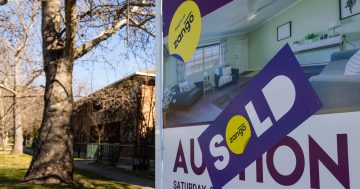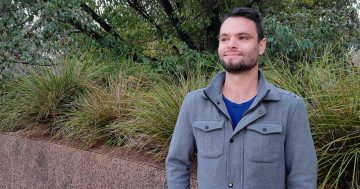
This isn’t the reason young people can’t afford a house. Photo: Fudio.
We like to talk about self-sufficiency in Australia.
We respect those who ‘made it on their own’, who pulled themselves up by the bootstraps and came from nothing. We’re absolute suckers for a rags-to-riches narrative, and we like to assert that anyone can better their circumstances if they just work hard enough.
But when it comes to the most basic of dreams – owning your own home – it’s becoming less and less realistic for first-home buyers to enter the market without external help. So why do we keep pretending like it’s possible?
A friend recently sent me a screenshot of a house in the same complex as mine that’s for sale.
“We could be neighbours!” she wrote. “If only I had a spare $34 k.”
I wrote back immediately to remind her that not having a spare $34 k as a millennial renting in Canberra is not her fault and that the only way my partner and I could buy our house was with a hefty deposit supplied by my parents.
My friend, like many others, struggles not to feel personally responsible for financial circumstances that are actually beyond her control. And sitting on the other side of the coin, I’m shocked by how significantly privileged we are financially by virtue of owning our house with the mortgage we have.
Let’s say I did scrounge together a 5 per cent deposit and managed to buy this house without external help. My actual mortgage would be about $200,000 more than it is currently. And if I hadn’t bought right when I did, in the window of time when the housing market was marginally more affordable before COVID drove prices up, my house would have cost almost double what we paid.
But because I got a 20 per cent deposit from my folks, because our place was $200,000 less than what it is now valued at, and because interest rates were incredibly low, we now pay almost half in our weekly mortgage of what weekly rent would be in the same complex.
So if I were renting right now and trying to save a house deposit, there’s no way I could save more than 5 per cent based on current house prices and realistically, that would take me several years. And now I have an asset worth significantly more than we owe, giving me a sense of financial security.
Barely anyone I know of my generation has bought a house without help. Whether that help is via a financial gift or by living at home for decades longer than previous generations and not having to pay rent during that time means they could save most of their income. Or, like some of my friends, by using their sizeable trust funds.
But because we don’t talk about this openly, and because society still sells this myth that anything is possible if we work hard enough, the insecurity of not being able to own a home is coupled with shame for many that they haven’t somehow been able to achieve what their networks seemingly have.
I tell everyone that our house was purchased with the help of my parents because I don’t see the value in pretending it would have been possible otherwise. We also don’t live in what would be our first choice of houses – we were honestly just thrilled to be buying at all, and we were happy to settle for what was affordable within the price range that was opened up to us, compromising on privacy, a backyard and suburb.
But of course, we don’t care about those compromises because we are so, so grateful to own this place – which is sad because secure housing shouldn’t be such an unattainable dream.
Of course, there are some people my age who genuinely do achieve home ownership without help. To my knowledge, I haven’t met any, but I assume they forwent plenty of other experiences in favour of saving every penny to own a home. I don’t think it should have to be a case of giving up other joys in life to have such a fundamental resource like secure, affordable housing.
I know my friend will eventually be able to own her own home because we’re in the lucky cohort of people who work well-paid white-collar jobs and have partners bringing a second income. It’ll take time, but they will definitely get there. But for everyone who doesn’t have those initial privileges, the dream of home ownership might never come to fruition, and that’s not because they ‘didn’t try hard enough’.





















